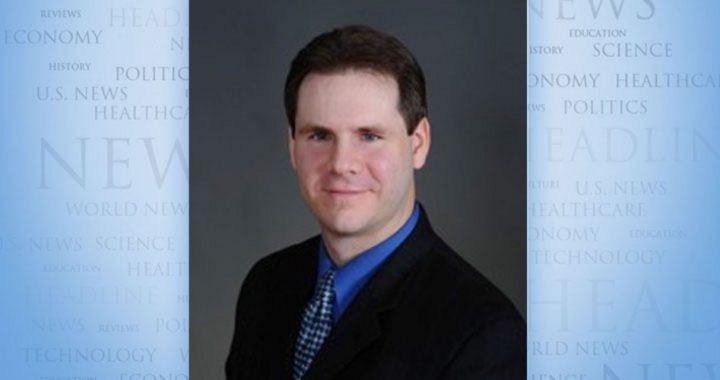
“As I rained blows upon him, I realized there had to be another way.” So said the Frank Costanza character on Seinfeld, as he described a toy-store struggle with another man over a doll during the holiday season. It was comedic fiction, but, lamentably, it is also art that has been imitated by life.
Most of us have heard the Black Friday stories. Two men viciously beat another man over shoes in a Sacramento mall; two people were shot over a parking spot at a Florida Wal-Mart; there was a brawl over women’s underwear at a California Victoria’s Secret; and a man punched another while trying to cut in line at a Texas Sears, prompting the victim to pull a gun. I guess you don’t mess with Texas shoppers. These incidents are nothing unusual, either, as Black Friday — the mad shopping day after Thanksgiving — is now associated as much with bad behavior as good deals.
It’s ironic, too. A day originated for the purpose of giving thanks for what we have is now followed by one devoted to aggressively seeking what we do not. And while it’s fashionable to bemoan the commercialization of holidays, we ought to wonder how we got to this point. Because it didn’t happen overnight.
Ever since “holy days” was contracted into “holidays,” there has been ever less holiness in them. This is no coincidence. Of course, Thanksgiving isn’t a holy day per se, yet it is a time when we’re supposed to give thanks to God. And materialism has infused Christmas as well, which is now the only time when everyone but the birthday boy gets remembered. But Christmas isn’t truly about trees and tinsel any more than Thanksgiving is fundamentally about turkey, stuffing, stuffing yourself, and football games. Yet how many Americans thanked God last Thursday or will think of His son next month?
Of course, many in this secular age regard this transition as the mere dying of myths. If we remove the spiritual from a celebration, however, what but the material is left to observe? If the spiritual were mere fantasy, what would exist but the material? And in moderns’ philosophical universe, which allows only for the material, is it any wonder they live in a material world?
It’s much as with modern weddings, which become more expensive, elaborate, and extravagant as our belief in marriage as sacrament diminishes. Or it’s a bit like how the houses grow as our families shrink, or how a man too busy to show his children love may shower them with things. It’s the inevitable waxing of style that attends waning substance. In the case in question here, holy days first become “holidays,” then hollowed-out days, and then, sometimes, unholy days.
So while Black Friday originally referred to an 1869 financial crisis, it now represents a materialism crisis. Yet while one may think this involves inordinate love of material things, I suspect that the materialist doesn’t love them at all.
He lusts after them.
It isn’t that he has one car he loves and washes and treats like a lady; it’s that he always wants a better-looking or newer car — or another and another and another, until he has a harem of them. He always wants to divorce his old electronics and trade-up to better ones; he always wants another toy. He is a philanderer of goods.
Ironically, it is only the sane spiritualist who would likely view the material with pure love. For unless he is a Manichean, he knows that material things can be sacred, such as how a Christian views the Incarnation or a Catholic does the Mass. And even when the material things may be more mundane, he’ll still appreciate them as gifts from God. He then may understand why G.K. Chesterton said, “You say grace before a meal. All right. But I say grace when I dip the quill into the ink.”
In contrast, the materialist can logically view nothing as sacred, not even his cherished material belongings. Yet since he perceives nothing beyond this world, they — the things of this world — will by default be of primary importance to him. And then people often diminish in importance. For if they weren’t both flesh and spirit, they would merely be material as well, organic robots comprising just some pounds of chemicals and water. And what do you do with material things you don’t want that hinder your ability to obtain material things you do want? What’s to be done with a layer of rock under which lies valuable ore? This helps explain why atheistic communists killed at a rate unprecedented (100 million people in about 70 years) in man’s history. A devout materialist will strip-mine civilization when some people stand in the way of his fool’s gold.
Of course, this isn’t to say that every atheist will step over bodies to achieve his ends. And most are not like physicist Stephen Hawking, who has thought his materialist creed through thoroughly enough to explicitly say that we are just robots. As with Christians, most don’t fully understand their world view and thus haven’t pondered all its implications. Yet as many atheists will tell you — think here of the “religion has caused all the wars” falsehood — even poorly understood faith has its effects. And the same is true of a poorly understood lack of faith. Philosophical foundation is the roots of the tree, and if they are rotten, how sound can it be?
A recent poll shows that, due to the pressure to buy gifts, 45 percent of Americans who use alternative financial services would prefer to skip Christmas completely. In other words, our Black Friday mentality has given what should be among the highest of holy days a black eye. That, not the obligation to buy presents, is the true price we pay for our materialism.


